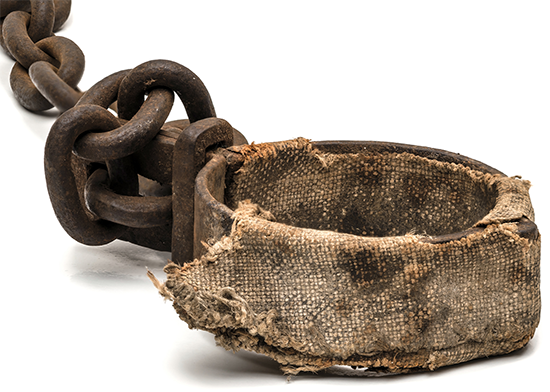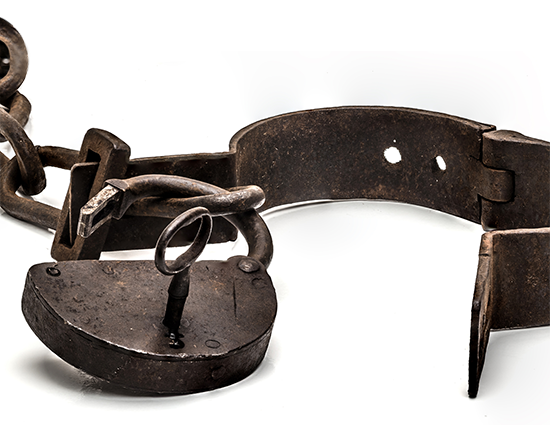
June-July 2023
All Together Now
------------------
|





Best Supporting Actor
By Jackie and Danny Gasperson
Each year, the Academy of Motion Picture Arts and Sciences awards Oscars to the best actor and actress. Setting aside their own identities, these highly gifted performers totally embrace a character's persona. Their roles are so prominent, and their performances so convincing, they carry the story's weight. Easily recognizable, they are the superstars of the industry.
But the Academy knows that no matter how talented the lead actor or how powerful the performance, a single actor cannot tell the story without help. They must be surrounded by other performers who assist with the narrative, who support the leading role. Their parts may not be as noticeable, but their contribution to the story is just as critical. They are stars in their own right. Therefore, the Academy also appropriately recognizes and awards these actors with Oscars for best supporting actor and actress.
The same is true in ministry. To some, God has given obvious gifts and visible roles and responsibilities within the Kingdom. Their names and ministries are well-known and celebrated. But seldom do they work alone. They are surrounded by crucial co-laborers whose roles are not as visible but are equally valuable. Without them, the work would be less effective or possibly non-existent. Acts 16 highlights one such supporting actor.
The Context
Paul and his new traveling companion Silas had embarked on Paul’s second missionary journey, revisiting churches from the first journey. Prevented by the Lord from going into new areas in Asia Minor and Galatia, they made their way to Troas. One night, Paul had a vision of a man from Macedonia pleading, “Come to Macedonia and help us.” Realizing this was the Lord’s leading, the team made their way to Philippi, a Roman colony and leading city of the district of Macedonia. The ancient city was renamed after Philip of Macedonia, father of Alexander the Great. As a Roman colony, her citizens had the same rights and privileges as those who lived in Rome itself.
Paul typically began ministry in a new place by attending a Sabbath meeting at the local Jewish synagogue. Apparently, Philippi had no synagogue, and Paul’s team joined a group, primarily women, who met regularly for prayer beside the river. Paul shared the gospel, and Lydia, a worshiper of God from Thyatira, was saved, along with her family. Lydia invited the missionary team to stay in her home, and they remained for several weeks sharing the gospel. Souls were saved, and a church was established.
The Circumstances
Paul and Silas returned regularly to the place of prayer beside the river to preach and teach. One day, a young slave girl, possessed by a demon who enabled her to predict the future, began following them, crying out and causing quite a disturbance. After several days of enduring her behavior, Paul, troubled by the situation, turned and, in the authority of Jesus’ name, commanded the spirit to leave the girl. She was miraculously delivered.
This created a problem for the slave girl’s owners who had been exploiting her demonic ability for financial gain. The men became irate and seized Paul and Silas, dragging them before the magistrates, officials appointed by Roman authorities and responsible for maintaining public order.
The slave owners did not care about Paul and Silas’ preaching. Because a loss of revenue was not a chargeable offense, they accused them of teaching unlawful customs. Though clearly a bogus charge, when large crowds joined the attack, the magistrates, perhaps motivated to restore peace quickly, ordered Paul and Silas to be stripped, beaten with rods, imprisoned in stocks, and carefully guarded.

At midnight, though in pain and restrained, Paul and Silas were praying and singing praises to God. Everyone in the prison heard their worship. God responded with a powerful earthquake that shook the prison, opened all the doors, and loosened the prisoners’ chains. When the jailer awakened and saw all the doors open, he assumed everyone had escaped and drew his sword to kill himself. Paul called out to stop him, assuring him all captives were still present.
This powerful demonstration brought fear and conviction to the jailer’s heart. “Sirs, what must I do to be saved?” (verse 30). Paul shared the gospel, and salvation came to the jailer and his family. In gratitude, the jailer brought Paul and Silas to his home, washed their wounds, and prepared a meal for them. He and his entire household were baptized that night.
The following morning, the magistrates sent officers to release the prisoners, but Paul refused to leave. His reasoning shook the magistrates more than the earthquake had shaken the jail. Paul revealed he was a Roman citizen. Their unjust trial and his public punishment violated his rights. Because the consequences of their actions could be severe, the magistrates personally came and sheepishly escorted Paul and his friends from prison, requesting they leave the city.
The Characters
Though several important characters contributed significantly to this story, this article will consider only two.
The Apostle Paul plays the lead role. His gifts, calling, and commitment were extraordinary and obvious. God used him to accomplish great things for the Kingdom. Although most would feel unqualified to play a role of such magnitude, we learn much from Paul to help us fulfill the roles God has assigned us.
Many glaring questions surround Paul in this story. Why did he wait until the next day to claim his rights as a Roman citizen? How and why could Paul and his friends offer prayer and even praise to God under such unimaginable circumstances? Why, when their chains were loosened, did they not escape? We are not told Paul’s reasoning, but some clues point us in the right direction.
First, Paul had learned to live with “Kingdom perspective.” Because he trusted God and submitted to the leading of the Lord in his circumstances, the jailer heard the gospel and was converted. Years later, in his letter to the church that grew out of this series of events, Paul—once again in chains for the Lord—explained his circumstances served to advance the gospel. Some might say Paul was chained to the prison guards. Paul understood the prison guards were chained to him!
He proclaimed the gospel to a captive audience. He realized this God-ordained situation allowed the gospel to spread throughout the entire palace guard (Philippians 1:12-13). This perspective taught him to be content whatever the circumstances of his life (Philippians 4:11). He understood that for him to live was Christ and to die would be gain (Philippians 1:21). We can learn from Paul: living with “Kingdom perspective” enables us to remain faithful and praise the Lord in the most challenging circumstances.
Now we come to the primary focus of this article: the role of the prison guard, someone with whom most of us can identify. Who was he? We are given little information, so we must fill in the gaps. His name appears nowhere in the biblical “credits,” but he plays a crucial role in the story, and his life teaches us valuable lessons.
How did he get this part in the story? He was likely just an average guy. Perhaps he earned his position of responsibility by working hard and being faithful. Philippi was a destination for many retired Roman officers and soldiers, so perhaps he merited the position from his honorable military service. He had a family and obviously influenced them toward the gospel successfully.
Regardless of the accuracy of our speculation, we can be sure he was not included in the story by accident. God loved the jailer, and he needed salvation, so God orchestrated his inclusion in this exciting drama.
Try to imagine how that eventful day transpired for him as he prepared to work the graveyard shift. No doubt he hoped for a quiet, uneventful evening. He was probably aware the charges against his new prisoners had no merit and braced himself for a long night of complaining and cursing, the typical behavior of his usual clientele.
When these men, falsely accused, brutally beaten, shackled, and chained in a filthy jail, lifted their voices to pray and praise God, it must have shaken him as much as the subsequent earthquake. They did not attempt to escape when presented the opportunity and even displayed concern when he was about to take his own life. The power demonstrated in response to their praise surely convinced him their God was far superior to the marble idols of the Romans. This was a God he wanted and needed to know, so he asked: “Sirs, what must I do to be saved?” (verse 30).
The Contribution
The moment someone is saved, God adds that believer’s name to the cast of characters in the grand script of His will. That night, the jailer played an easily overlooked yet important role in this story.
The jailer was saved, and his actions prove it was not just an emotional response. His was a commitment. He took the prisoners to his home, shared his experience with his family, and encouraged them to join his commitment to faith. He offered care and hospitality to his new friends. All these things placed the jailer and his family at great risk. Short hours before, he contemplated suicide out of fear over what the authorities might do to him for “losing” prisoners. A few short verses later, he was willing to risk all to do the right thing. The jailer had a new perspective. He trusted the Lord the way he saw Paul and Silas trust the Lord.
His contribution to Paul’s ministry is far from insignificant. He cared for their physical needs. After being stripped, brutally beaten, and tossed into a damp and dirty prison cell, the missionaries were susceptible to infection or other physical problems. The jailer’s care may have saved their lives; it undoubtedly hastened their recovery. He ministered to their emotional needs with food, hospitality, and, most importantly, love and kindness for his new brothers in Christ. He did all this at great risk to him and his family.
Some might say the jailer only played a small role that night. But I suspect Paul and Silas would claim at that moment in time, he was their “Best Supporting Actor.”
The Continuation
The Bible does not reveal what became of the Philippian jailer and his family. But we know after this event, more people came to faith, and a church was born in Philippi. Possibly, this man played an important role in the founding and care of the church. Sometimes, great supporting actors are given a larger role.
It is probably not coincidental that the same compassionate, generous support demonstrated by the Philippian jailer became the “personality” of the church that eventually became dear to Paul’s heart and instrumental in his ministry.
About the Author: Jackie Gasperson and her husband Danny have been married 41 years. Jackie works for IM, Inc. and WNAC. The Lord has blessed them with two children and two wonderful grandsons. |
|

